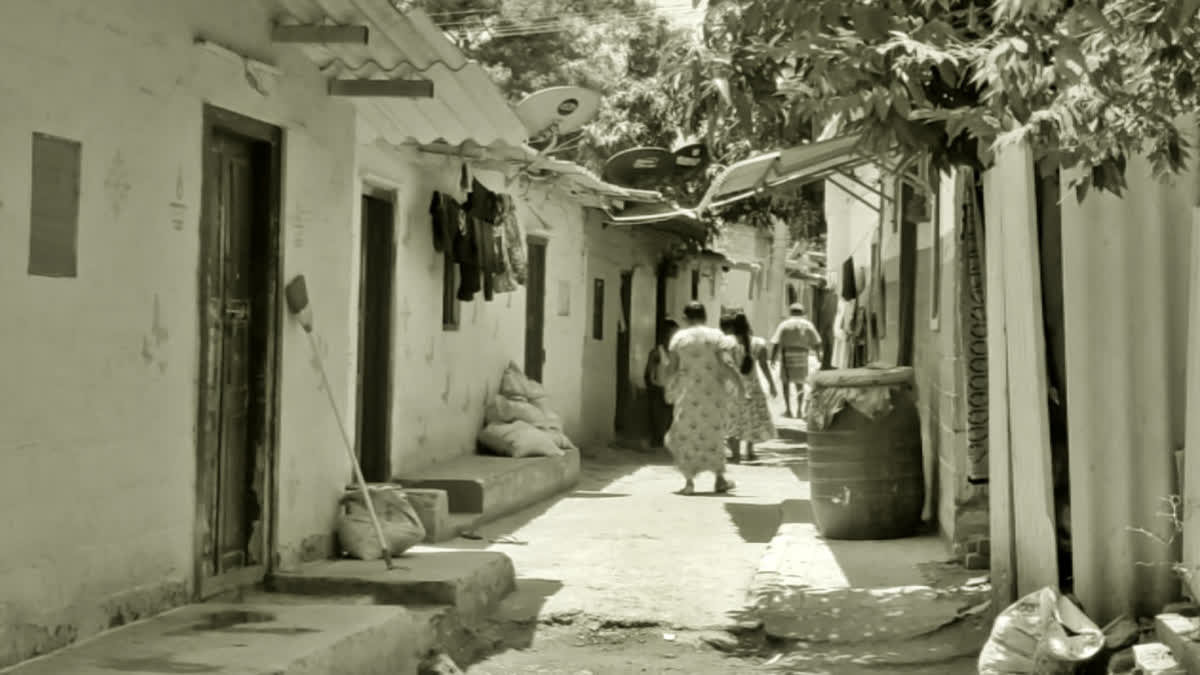Chennai: Called the 'nowhere people', the Sri Lankan Tamil refugees fled to India in the 1980s seeking safety and asylum from the harrowing Sri Lankan Civil War. The contentious Citizenship (Amendment) Act could have been the ultimate solution to their decades' long suffering. It could have but it is not. The law hits these refugees hard by omitting them.
The Modi government announced the implementation of the CAA rules last month, four years after the bill was passed. Under CAA, Indian citizenship will be provided on a fast-track basis to Hindu, Sikh, Buddhist, Jain, Parsi, and Christian migrants from Afghanistan, Bangladesh, or Pakistan, who had entered India on or before December 31, 2014.
The green signal to the law came amid stiff criticism, with political and social circles highlighting its drawbacks, and calling it 'discriminatory'. The most significant of the questions posed against the law has been that it does not protect all religious minorities, nor does it apply to all neighbours. Sri Lankan Tamil refugees, a community of nearly 60,000 people, are not covered under CAA even though they came to India facing circumstances similar to ones that are.
Grim present and dark future
A visit to their camps in Madurai and Coimbatore reveals the sordid state these refugees are living in. In the Pooluvapatti camp in Coimbatore, around 1800 Tamil refugees are put up in temporary single or two-room asbestos-roof houses. Most of them do not have in-house toilets and have to use public ones, with around one toilet per hundred refugees. Women and children, particularly, have to live in unhygienic surroundings. Lack of opportunities due to non-citizenship hampers any attempt to improve their living standard.
Youth in these camps find chasing a mirage as they pursue education in schools and colleges, without any hope of getting a reasonable employment.
"I study in class 11 and wish to become a government bank manager. But, since I am not a citizen, I cannot pursue such jobs. I cannot even prepare for competitive exams. I feel my education is useless," said Preeti (name changed), one of the many teens living in the camp who stare at a dark future.
A refugee woman in her early 40s said despite living in India for several decades, her life has hardly improved. "We have been here for 30 years, but we are only able to take care of our basic needs of clothing and food. If we had citizenship, we would have bought some land after taking a bank loan. It would have benefited us and our children greatly," she said, requesting not to be named. The woman argued that those who move to other countries get citizenship in a matter of 5 to 10 years. "We have been living in India for 35 years, yet we have nothing".
"Even if we go to Sri Lanka now, we don't have their citizenship. Does it mean, till the end of our lives, we are compelled to live as refugees? We will vote for the party that is offering citizenship. We are begging the central and state governments to give citizenship, we don't need anything else," she said.
Another female refugee who managed to study nursing could not apply for a government job and had to settle on a private one where she is paid measly. "According to my educational qualification, I will get job opportunities in government hospitals. But due to non-citizenship, I am not eligible. I am working in a private hospital for a very low salary," the woman said.
Many other refugees in the camp have good educational qualifications but are forced to take up informal jobs. It is a common sight in such camps of educated men to go and work as painters and wage labourers in hotels.
Hurdles to a normal life
Besides not being able to apply for jobs, the Sri Lankan Tamils living in Camps cannot acquire or transfer immovable property in India other than lease, not exceeding five years. They are also unable to own vehicles or acquire licenses for heavy motor vehicles due to undocumented administrative instructions owing to their present status as 'illegal migrants'.
They are also unable to register and own light motor vehicles in their names as the current rules for registration of vehicles does not accept the Government issued Identity Card to Sri Lankan Tamils.
Life becomes more difficult when youth start to look for jobs after completing studies. This is when Q Branch (internal security), one of the wings of Tamil Nadu Police, begins to keep an eye on their movement. The Q Branch police officials who monitor the camps impose a strict rule that once the youths in these camps start working, they must appear in person and in time for the audit. Failure to appear in three consecutive audits will result in cancellation of the registration of the particular person from the camp.
Challenges and mental health concerns
A 2022 UNHCR analysis found that 47% of the refugee women seem to have mental health concerns such as sleeplessness, aloofness and feeling depressed. Reasons cited by the women included debt, being worried about their future as a refugee, physical threats, alcoholism and substance abuse of a family member and other marital issues. Amongst this percentage of women, it was found that 2% displayed suicidal ideations very regularly, 7% quite often and 19% rarely.
How the numbers speak
